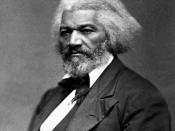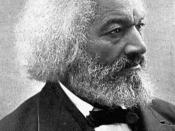There is no question that the existence of slavery created a paradox ever since America declared its independence from Britain. Many say the American Revolution did not finish until after the slaves were freed. The question of who freed the slaves is debatable. Historians disagree on whether it was the government or the common people--full scale war or full-scale rebellion that led to the end of slavery in the United States.1 Ultimately, it was the government who freed the slaves, but "liberation from the top would go only so far as the interests of the dominant groups permitted."2 At the time government tended to appease the South. Therefore, at countless key points during the destruction of slavery, it was pressure from the abolitionists and the slaves themselves, and not political pressure, which brought the nation's blacks one step closer to equality.
American Emancipation was part of a global and domestic anti-slavery moment based in ideas spawned by the Enlightenment.3
The power of world opinion was an important source of abolitionist movement. In 1833, Britain, our most important ally, was the first to outlaw slavery with France following in 1848. The anti-slavery sentiment in Europe (especially Britain) inspired and glorified many abolitionists in the US, including Frederick Douglass, and more importantly, William Lloyd Garrison.4
Perhaps the beginning of the anti-slavery crusade was in 1808, when slave trade became illegal in the US. However, nobody took that law seriously--certainly not the Presidents during the antebellum period. John Hope Franklin estimates that about 250,000 slaves were imported illegally before the Civil war.5 For a population of only 30 million, that the arrival of new slaves composed 2% of the population. Based on those statistics, slave import was as big a problem then as illegal immigration is today.
Under the Slave Codes of the...



Essay is nice detailed
I am confuse from where writer gets the information because no references no bibliography
0 out of 0 people found this comment useful.